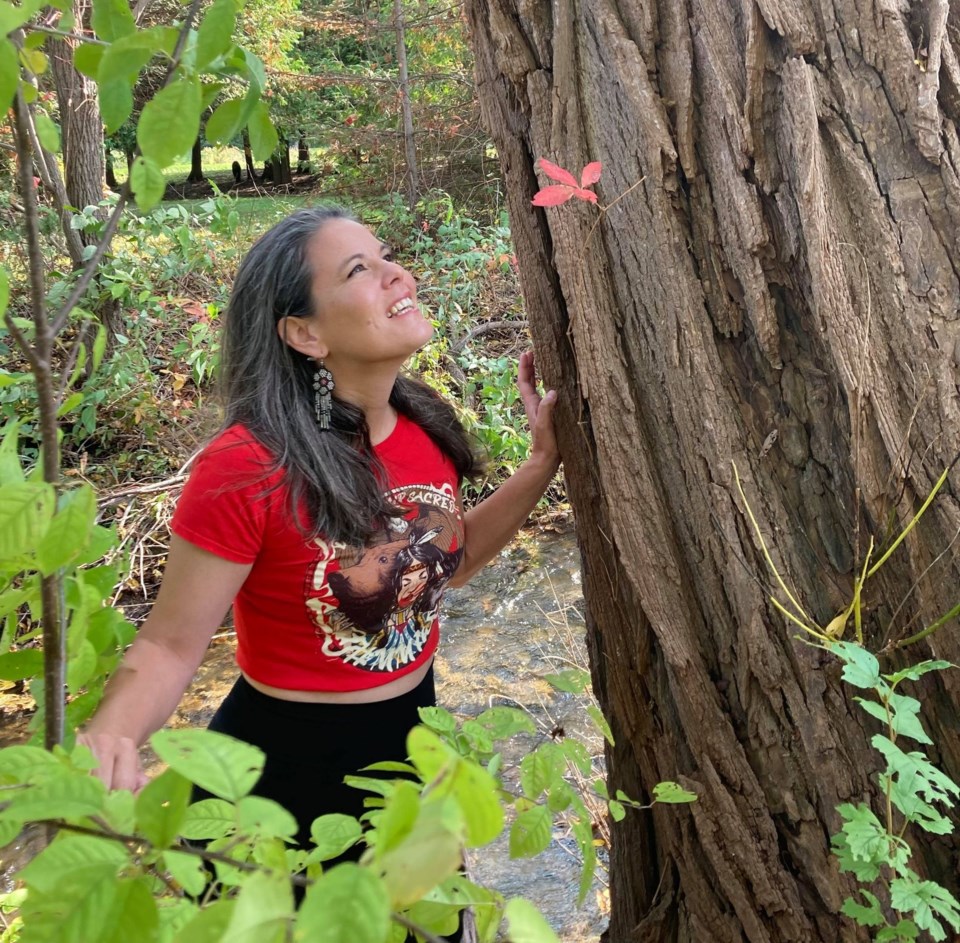Shé:kon sewakwé:kon, warm greetings all.
I am grateful that I’ve been able to respond to the call of nature often this month. Hiking, paddling, and biking have been generously peppered into the weekly activities.
The merciless heat reminded me to thank the trees for their shelter and then had me reflecting on that relationship.
I have fond memories of this huge Weeping Willow that stood with an impressive presence on our property during childhood. I found escape behind its wisps. We had apple and pear trees that fed us in the latter half of summer and fall when we were having too much fun to break for a meal.
We climbed the trees, we hid in the trees, we found rest under the trees.
When I was a very small girl, I would sit with a tree and talk. I didn’t speak in my head but aloud because how else was the tree to hear me? I don’t know what I said to trees – I don’t know what trees said to me. I’m told I would sit in conversation for noticeable amounts of time.
I suppose it doesn’t matter what was said – although my curiosity still piques. It matters more what I learned from that time when I used to talk to trees.
I’m not sure what started these rendezvous. I certainly remember what stopped it.
It was peculiar, it was silly, it was nonsensical to think that any meaningful connection was being formed. Trees aren’t sentient beings. I was the youngest of four siblings. I was teased – an innocent, playful dismissal of my childish antics.
I was shamed and embarrassed into abandoning this innocuous habit. And so began the separation of spirit and mind that I now work to reunite.
As I think on it here today, I can’t help but be a bit sad for that little girl who knew something special was happening in those exchanges. For that time she felt kinship with the trees.
It was natural until she was told it wasn’t.
The left side of my brain understands the assumed oddity of this practice. The right side is forming an imaginary fireball to be hurled at the conditioned minds that interfered with a sacred bond – an innocent, playful dismissal of an overrated “mature” view.
I wonder if it would have taken me so long to find my way back to play, imagination, and soulful curiosity if that little girl had felt free to talk to the trees.
Children remind us to seek joy and magic in the stories of the life around us. As our Indigenous cultures are returned to more and more of our people, I am hopeful that little ones will return to their rightful place as bringers of teachings – awakening the dormant spirit of wonder and wander.
I show gratitude to the trees now for whatever they offered to that little girl. She still carries a bond with the tree life, and she knew how to lead me back it.
In recent years I resumed my practice of talking to the trees. They do talk back by the way.
Skén:nen, peace.
Jillian Morris is Kanien’kehá:ka, turtle clan and band member of Six Nations of the Grand River Territory now living in Collingwood, where she also serves as Poet Laureate. She shares stories and experiences passed down through the oral traditions of Kanien’kehá:ka culture in her regular column, entitled Ka’nikonhrí:io, (The Good Mind) published on CollingwoodToday.ca.



